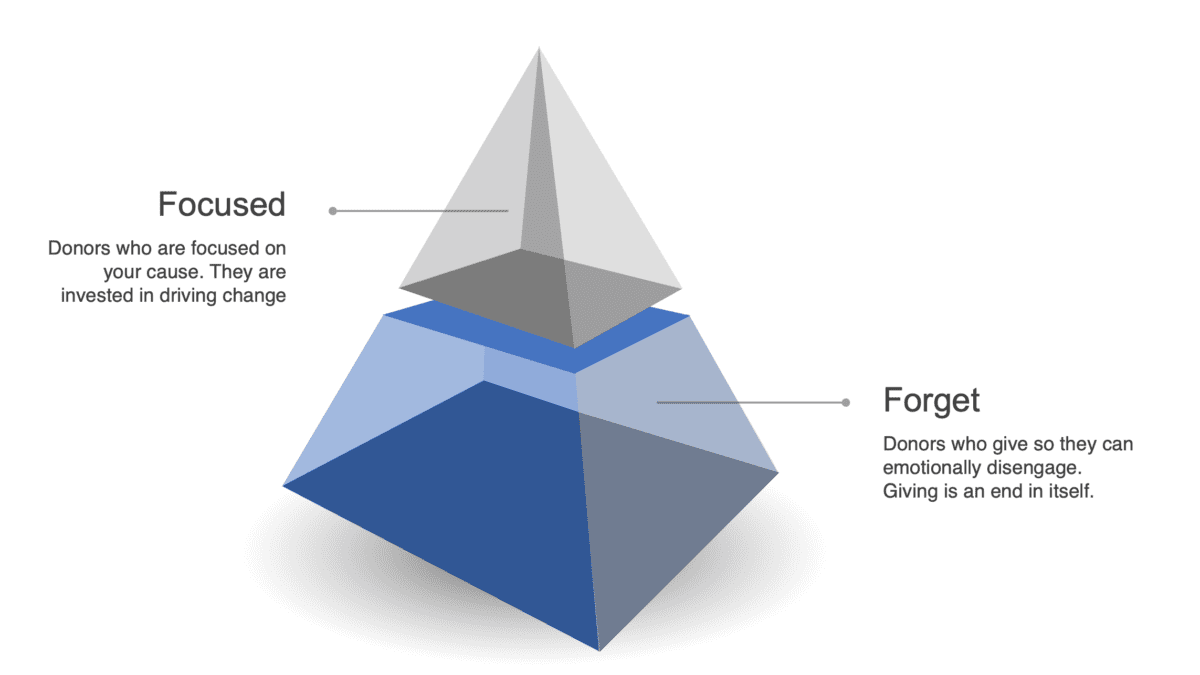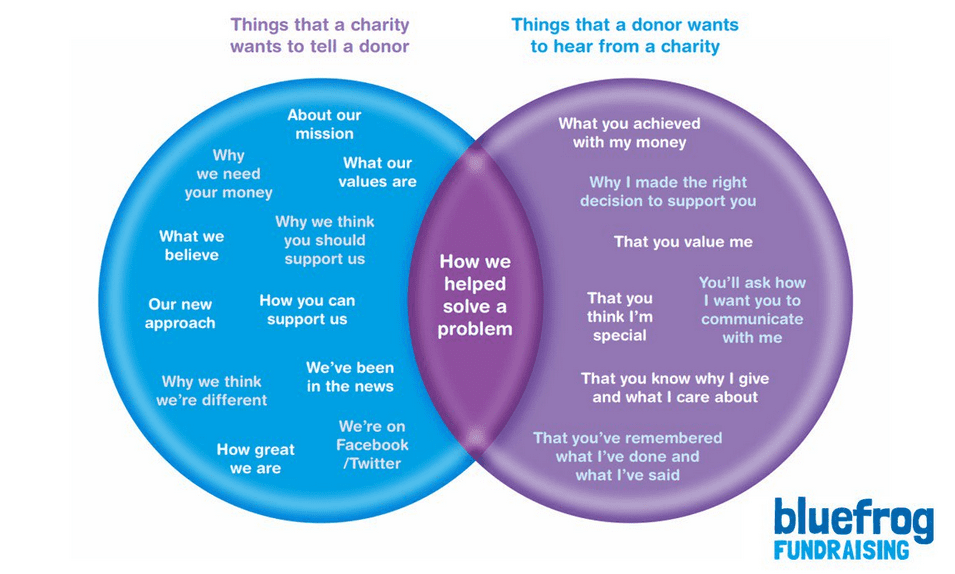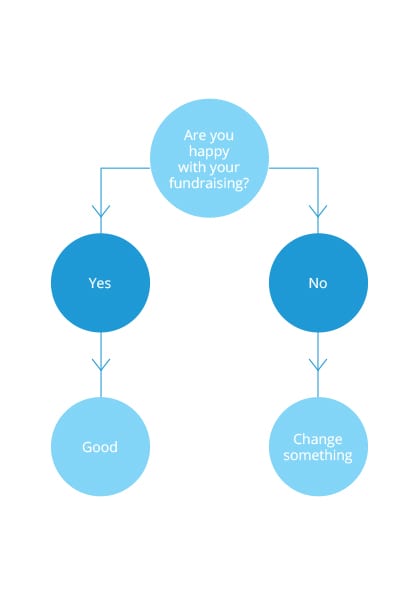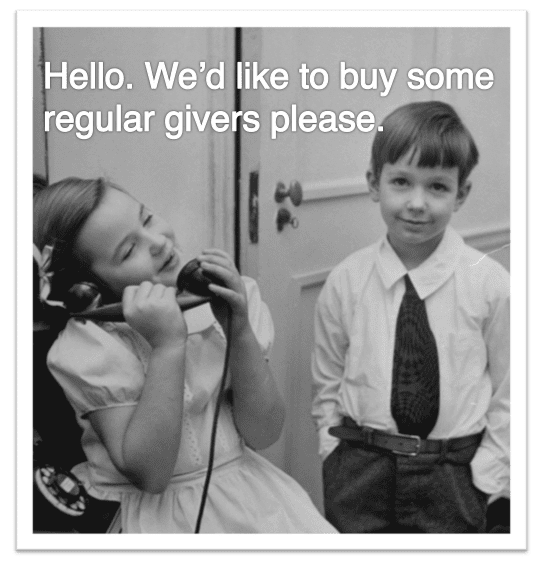Do your donors give to focus on a problem or to forget it?
One of the findings that's been pretty consistent in our research into attitudes to giving in the time of Coronavirus has been how it has focused people's minds about the charity work that they want to support.
As we've pointed out in our reports (links follow: part one, part two, and part three) the impact of the virus and the subsequent lockdown has brought giving to the front of people's minds in a way we don't normally see outside of a traumatic event such as an illness or death.
As a result, we are seeing an increasing number of donors reporting that they are spending more time and energy thinking about which charities should receive their support. Alongside this, they are more likely to worry about whether they made the right decision when they put a cheque in the post or clicked the donate button.
This appears to have had a negative impact on the amount of money being given in the form of Forget gifts.
So how do these Focused gifts and Forget gifts differ?
Focused gifts are those from donors who actively care about your cause, your organisation and your beneficiaries. They invest in your work and want to see you achieve your goals. They will often talk passionately about wanting to stop - or start - something.
They also want to be part of the process of change and feel that they have helped solve a problem that is of significant concern to them. That's why they want to hear what difference their gift has made.
We often find focussed donors supporting healthcare causes where they have been personally impacted by a disease or medical condition. They can be found supporting pressure groups or causes working in specific areas of personal interest. Over the last few weeks, we have met many donors who have given because of their desire to beat to Covid-19 – these are focused gifts and can be significant sums of money.
Forget gifts are different. They are given so people can disengage emotionally from a problem. Rather than giving to bring about change, forget donors are often motivated to give because it means they don't need to worry as much about an issue as "they have done something".
Donors who give to forget, might stand out because they have given just the once or they will support with a relatively small monthly donation – often no more than a few pounds or dollars a month – and they rarely respond to additional appeals for help. They may value your work. But it isn't a priority for them.
This type of relationship was summed up by a donor when he spoke about his support for one particular charity:
"I don't mind giving them a tenner a month."
He didn't mind. He didn't feel he was getting any value from his gift. He didn't have any sense of what his £120 a year had made possible.
Dig deeper into the focus / forget dichotomy and you'll find many donors give both types of gift. Those who give to tick a charity off a forget list, give to another charity because they are actively focused on wanting to bring about change. What determines the difference is how much they care about a specific cause or organisation. If a donor says that they 'don't mind' giving to an organisation, it is likely to mean that they don't really have much expectation from them or have significant levels of solidarity to a cause.
Donors who give focused gifts stick with a charity when times are hard. Those who give a forget gift can come and go - particularly when something more important comes along – like illness in a family or a pandemic. And when people become more selective about who they want to support, that becomes a problem for charities with donors who might not be committed to their work.
So what can you do if you find yourself in this situation? You might have seen cancellations of monthly gifts rise and you have a group of supporters who are indifferent to any communication that you send them online or offline. Here are a few ideas how you can create a personal impact journey that will help to drive focus:
First, ask yourself what your donors want from you. We often find that a Forget gift will be given in response to a visible problem – after all, people are giving to help. But for many reasons, the donor may consider the problem to be broadly beyond a solution.
In this situation, remember the four Bs.
- Be prompt
- Be appreciative
- Be personal
- Be authentic
The best way to engage at a time like this is to show your humanity. A thank you card bought from a local newsagent, with a personal message of thanks will be more welcome that an expensively designed welcome pack. Your passion can be catching if a donor sees it is real and heartfelt. And as ever, a stamp and handwriting are the best things you can ever put on an envelope.
Second, follow that up with a report showing how a donor has made a difference – relevant to gift size – and you'll start looking like a charity that values the help the donor is giving.
Third, ask about their opinions. Ask them why they first supported you – if they remember. Ask them if they care about your work and how committed they are. And also ask about how important they think you are. Prompting donors to reflect on and articulate their beliefs in this way helps strengthen their identity as your supporter. When you ask what they think, it shows that you are interested in them – and when they respond it shows they are interested in you.
Finally, consider this within a framework where you aim to delight and surprise your donors. A constant round of asking for money without offering anything but a very basic acknowledgement in return, can be less than inspiring.
Everyone is interested in hearing about what they have made possible. By creating a personal impact journey you may well be able to move your organisation out of the forget zone and into focus - something that is of central importance as the pandemic continues to unfold. And furthermore, it is something that will put you in a stronger position as we begin to work out what the new normal will look like.
And if after that, they still aren't giving, maybe the best thing you can do is forget them! At least for a while.
Tags In
Related Posts
5 Comments
Comments are closed.
The Essentials

Crack the Code to Regular Giving: Insights, Strategies, and a Special Giveaway!

‘Tis Halloween. Keep to the light and beware the Four Fundraisers of the Apocalypse!

Why do people give? The Donor Participation Project with Louis Diez.

A guide to fundraising on the back of a postcard

What does the latest research tell us about the state of fundraising?










[…] Your work isn’t a priority for them, which is why they may give smaller amounts and less frequently (typically just once). For more insights, check out this post: Focused and forget gifts […]
[…] Do your donors give to focus on a problem or to forget it? […]
[…] Do your donors give to focus on a problem or to forget it? […]
[…] […] Hannah Kowszun“Status of UK Fundraising 2020: key … by Charity Writing Digest: “Less talk, more action” – 3rd Sector Mission Control […]
[…] Do your donors give to focus on a problem or to forget it? […]